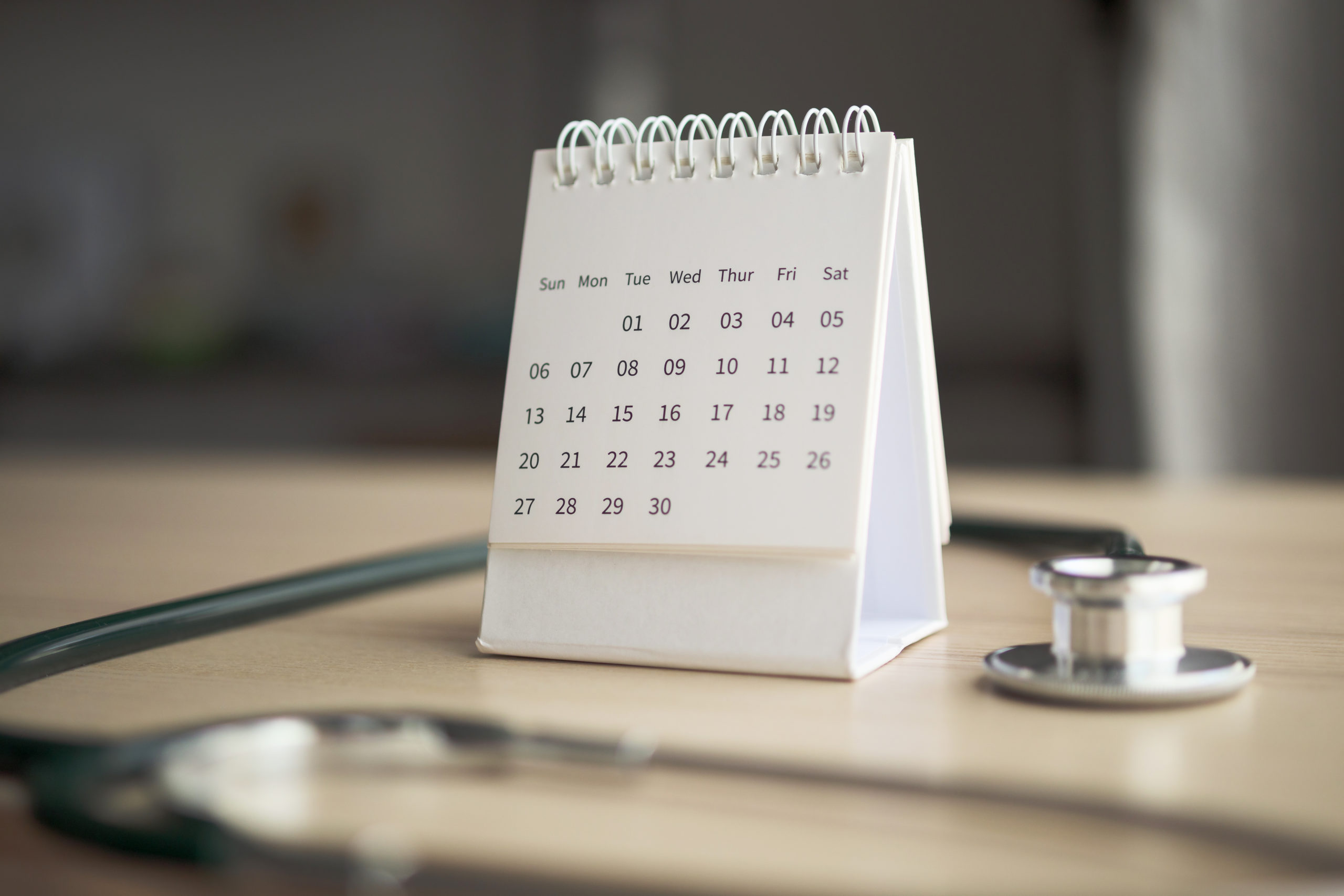by Diane Masiello
Self-care is not just manicures and massages but also taking care of medical issues. Eating right and exercising are the best ways to make sure medical tests return normal results, but watching food intake and getting in 10,000 steps don’t guarantee every part of the body will stay healthy forever. Here are some common health screenings the Center for Disease Control and the Mayo Clinic suggest everyone should have, and when it’s best to have them.
General Health Check-up: Annually
No one thinks twice about bringing their child to the doctor for a check-up every year. Yet as generally healthy people enter their late teens and twenties, annual doctor’s visits become a thing of the past. However, seeing a general practitioner at least once a year should be a life-long habit. It gives medical professionals a baseline—what’s typical for each individual—to track over time. It also guarantees everyone will think about their health at least once a year. Establishing yourself as a patient with a primary care physician and, for women, a gynecologist can often cut down on wait times for a doctor’s appointment when something feels off. There’s no need to run to urgent care and see the doctor of the day when you have a doctor who has been tracking your health for years. Plus, seeing the same doctor every time allows for continuity of care and a medical record that can help spot recurring issues which might indicate a bigger health problem.
At an annual physical, expect to talk to the doctor about how you’re feeling and any health concerns you have. The physician should review your family history of systemic diseases like heart, lung, gastrointestinal issues; mental health; and cancer. This tells the doctor what tests you will need and when.
The doctor will take and record blood pressure, measure height and weight and take your temperature at every physical. They will listen to your heart and lungs and examine your abdomen to ensure no abnormal hardness or swelling. These straightforward exams can help detect any health problems before they become too serious.
check-up but is best done by a dermatologist. If you or a loved one notices an abnormal-looking skin growth on your body, do not wait a whole year to see the doctor. Make an immediate appointment; early intervention is a key component of positive outcomes for skin cancers.
Sexually Transmitted Disease Screenings: Annually, once sexually active.
Everyone sexually active should be screened for chlamydia and gonorrhea every year, ideally before becoming intimate with a new partner, but no later than 21. They should also be screened at least once for Hepatitis C after they turn 18. Women should have a pap smear to test for the human papillomavirus (HPV), which can cause cervical cancer, starting when they are sexually active. If they have received the HPV vaccine, they should consult with their health care professional to see if and when testing should be done.
Women’s and men’s health exam: Annually
Every year, women should have at least an annual breast exam by a physician, as well as a pelvic exam. Men should have a testicular exam.
Mammogram: At least every two years, starting no later than 50
While many women start earlier, especially those who feel an abnormality during a self-exam, have a family history of breast cancer or colon cancer, or just want reassurance, the latest any woman should get a first breast exam is age 50. If results come back normal, women should plan to get one every two years. If there are any abnormalities, women must follow their physician’s recommendations. Establishing a patient with a gynecologist, and going for an annual physical, will ensure all health tests are done on time and when appropriate. If part of a family with a history of cancer, screenings should begin earlier than the age at which the family member was diagnosed.
Heart disease screening: As needed
If you have a family history of heart disease, a general practitioner will measure cholesterol through a blood test as early as age
- If levels come back standard, they will do another screening every five years. With no history of heart disease in the family, first cholesterol screenings should be done no later than 45.
Diabetes screening: As needed
In those with a family history of diabetes or who are significantly overweight or obese, blood tests to screen for diabetes can be done as early as age 20, sooner if ordered by a pediatrician. All people should start diabetes screening by age 40, especially if they are overweight or obese. Women in their first trimester of pregnancy should also be screened for gestational diabetes.
Skin check: Annually
Everyone should have at least an annual skin check so the doctor can look for abnormal moles, growths or lesions that could become cancerous. This can sometimes be done on a yearly
Prostate screening: Annually, starting no later than 50
While men with a family history of prostate cancer may begin as early as 40, most men start at age 50.
Colorectal Cancer Screening: Every ten years starting at age 50
If you see an abnormality in your stool or develop unusually extreme bathroom habits, consult a doctor immediately. However, starting at age 50, everyone should have a screening for colon cancer. Those with a family history of colorectal cancer should have their first screening before the family member’s age when diagnosed. If everything comes back normal, the screening via colonoscopy should be done every ten years.
Bone density screening: As needed starting at age 65
Unless someone has a history of multiple bone fractures, most patients will not require a bone density screening before 65 if female, 70 if male. The time between screenings will depend on the scan’s findings.








Leave A Comment